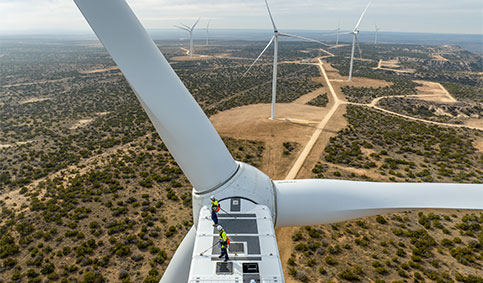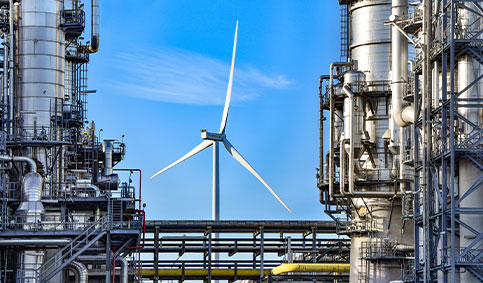Policy positions
Our climate and energy transition policy positions serve as a global framework for our advocacy with governments, international organisations, industry associations, and other stakeholders, globally, regionally and within countries. In using the positions, we recognise that the pace of the energy transition will vary around the world.
In March 2024, we updated our climate and energy transition policy positions to be in line with our Energy Transition Strategy 2024.[1] We believe our positions support the goals of the Paris Agreement and the world achieving net-zero emissions by 2050.
The positions focus on the policies that we believe are needed to support the development of technologies and infrastructure, and to encourage customers to choose low-carbon alternatives. They cover net-zero emissions policies and specific policy areas relating to the secure supply of energy, changing energy demand in the transport and industry sectors, and growing low-carbon solutions such as biofuels, renewable power, carbon capture and storage, and hydrogen.
In this latest update of the positions, we have focused on the policy topics that are critical to our strategy. This includes adding policy positions on upstream, low-carbon fuels and carbon credits. We have also made changes throughout to reflect the evolution of our strategy and the external environment.
We have set out our approach and priorities on other issues such as a just transition, nature and human rights on our website.[2]
By evolving our policy positions, and sharing these with stakeholders, we aim to increase collaboration and help to create the policy frameworks we believe are needed for the world to achieve net-zero emissions by 2050. Our positions will continue to evolve as the world moves through the energy transition.
[1] www.shell.com/sustainability/transparency-and-sustainability-reporting/advocacy-and-political-activity/global-climate-and-energy-transition-policy-positions.html and www.shell.com/sustainability/our-climate-target/shell-energy-transition-strategy.html
[2] www.shell.com/sustainability/our-climate-target/a-just-transition.html, www.shell.com/sustainability/nature.html and www.shell.com/sustainability/people/human-rights.html









